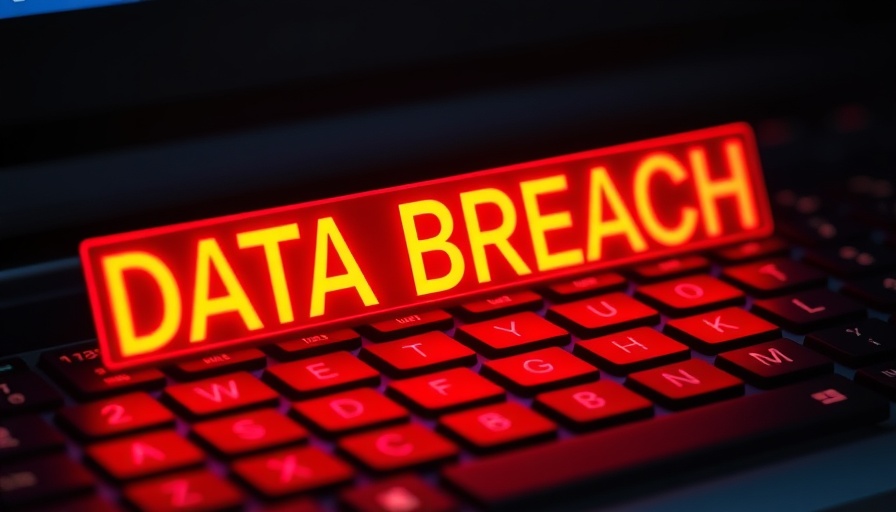
The Major Healthcare Data Breach You Need to Know About
The healthcare sector has recently faced a staggering data breach at Yale New Haven Health, where sensitive information of approximately 5.6 million individuals was compromised. This incident is particularly alarming, marking the largest data breach reported in the sector so far this year, according to the Department of Health and Human Services (HHS) Office of Civil Rights.
Understanding the Impact on Patient Data
This breach involved unauthorized access to the health system's electronic systems, which led to the exposure of critical patient information including demographic details, Social Security numbers, and medical record numbers. Fortunately, the breach did not affect the electronic health record (EHR) system, ensuring that patient care could continue without interruption.
Why Healthcare Data Is So Valuable to Cybercriminals
Experts underline that the healthcare industry is a lucrative target for cybercriminals because medical records can be used to commit fraud, including false tax filings and Medicare claims. Barry Mathis, a principal at IT advisory consulting firm PYA, explains that each stolen medical record represents a wealth of information valuable on the dark web, making the healthcare sector constantly vulnerable to these attacks.
The Future of Cybersecurity in Healthcare
The frequency of data breaches in healthcare is likely to continue rising, driven by the financial incentives for cybercriminals. With many organizations still grappling with the implications of prior breaches, like the record-breaking incident involving Change Healthcare that affected 190 million people, it’s pivotal for consumers to stay informed about the potential risks associated with their health information.
What Can Consumers Do to Protect Themselves?
As healthcare data breaches become more common, consumers must take proactive measures to safeguard their personal information. Regularly monitoring bank statements, setting up alerts for unusual account activity, and considering credit monitoring services can provide an essential layer of security. Additionally, understanding the overall context of cybersecurity within healthcare can empower patients to demand better protective measures from their providers.
In conclusion, the data breach at Yale New Haven Health serves as a wake-up call for the healthcare industry and patients alike. The risk to personal data is ever-increasing, putting the onus on both institutions and consumers to take protective actions to ensure privacy and security in healthcare settings.
 Add Row
Add Row  Add
Add 




Write A Comment